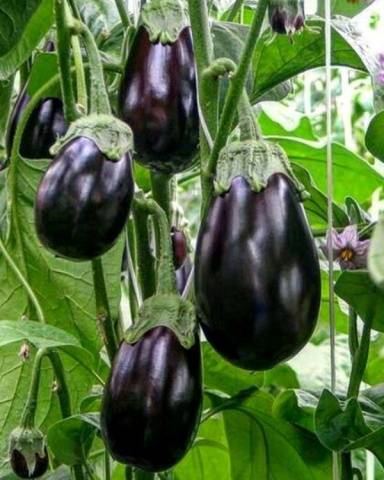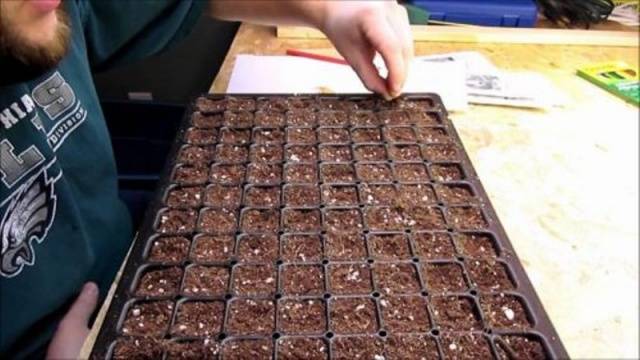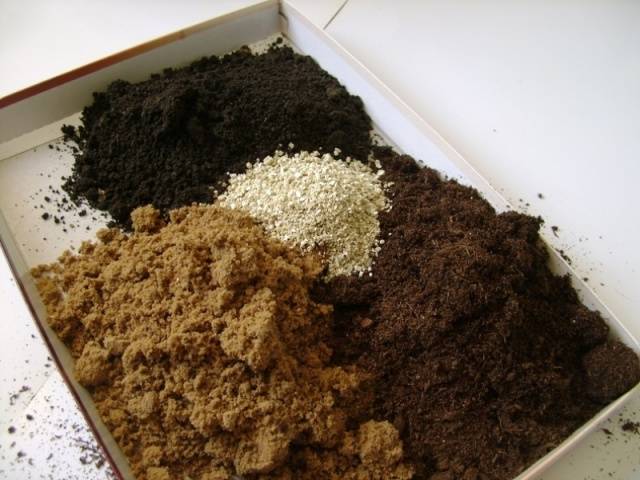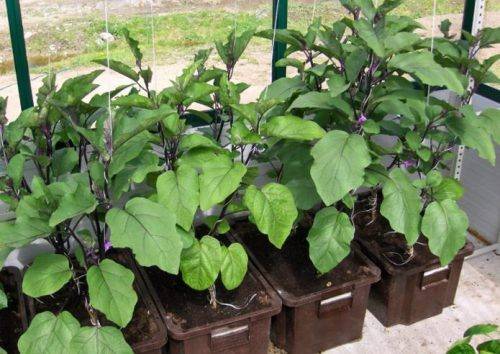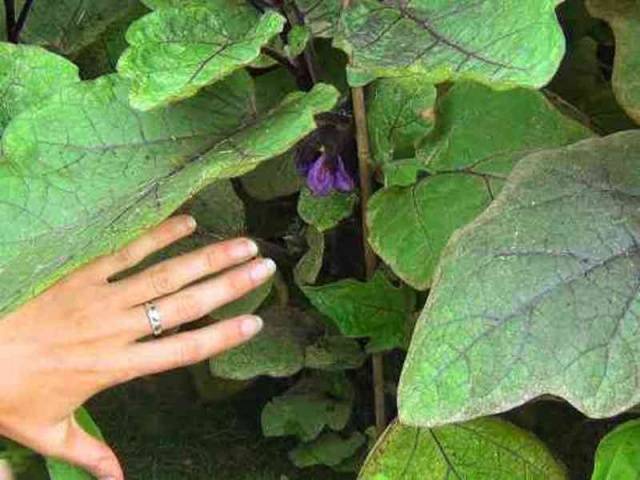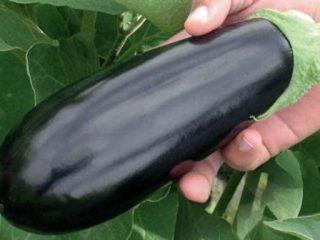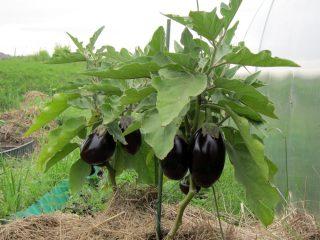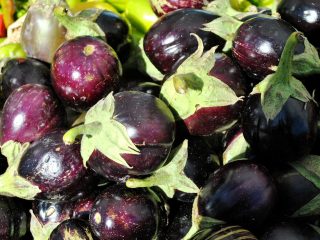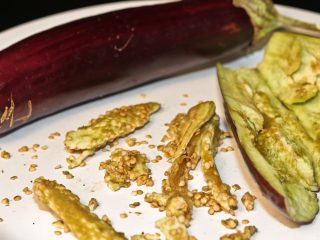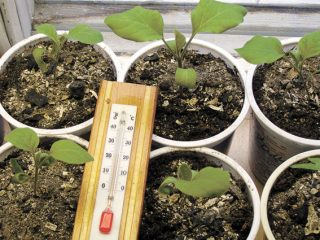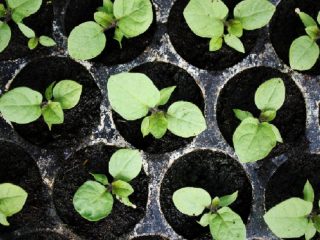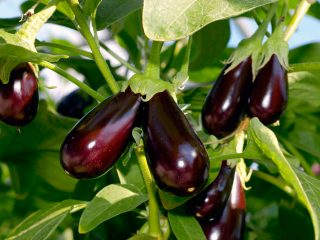Content
The Black Beauty eggplant is a mid-season variety and is intended for cultivation both in open and protected ground. The period from germination to fruit appearance depends on growing conditions. In open ground, the harvest can be harvested after 120-140 days, and when grown in a greenhouse, the first fruits can be harvested two weeks earlier. The eggplant variety is valued for its resistance to many diseases and its ability to bear fruit under adverse weather conditions.
Black handsome. Characteristics of the variety
The fruits of the Black Beauty are elliptical in shape with a dark purple shiny skin and grow up to 13-15 cm in length and 11-12 cm in diameter. The eggplant pulp is cream-colored, tasty and without bitterness. Black beauty is suitable for all types of home cooking - from drying to canning.
A description of the Black Handsome can be seen in a short video:
Black beauty is considered one of the highest-yielding eggplant varieties. From one sq. m with proper care you can harvest about 12 kg of fruit. Accordingly, one bush can produce more than 3 kg per season.
The plant is low, branched, fruits begin to form in the lower part of the plant.
Growing and care
The Black Beauty variety is grown in seedlings. Eggplant seeds can be sown from February to April.Specific sowing dates depend on further growing conditions. Eggplants are planted in the greenhouse at the end of May, and seedlings are brought into the garden as soon as stable warm weather is established (not lower than 15 degrees).
Preparing seedlings
Black beauty is a heat-loving variety. Before planting in open ground, eggplant seedlings must be hardened off and prepared for “moving” to a new place, in more harsh conditions. 2 weeks before the expected planting date, the temperature in the room with seedlings is gradually reduced to 17-16 degrees. You can take the box with eggplant seedlings outside, but you just need to make sure there are no drafts.
Seedlings are fed a week before transplanting. Mineral (potassium sulfate) or organic (humate) fertilizer is diluted with water and watered the sprouts.
After feeding, eggplant seedlings are subjected to antifungal treatment with a solution of Bordeaux mixture or boric acid, and two days before planting, the seedlings are watered abundantly.
Preparing soil and beds
While the eggplant seedlings are growing, hardening and being prepared, you need to take care of the garden bed. The optimal timing for applying fertilizers to the soil coincides with the autumn cleaning of the garden and vegetable garden. Therefore, at this stage you need to immediately determine the place for future eggplants. Ideally, it will be a bed of onions, carrots or cucumbers. It is not recommended to plant after corn and other nightshades. It is believed that these crops deplete the soil, and the land needs rest after such plantings.
Before digging into the eggplant bed, you need to sprinkle fertilizer. Its composition can be as follows: for each square. m 4-5 kg of manure, 30-50 g of ammonium nitrate, 80 g of superphosphate and potassium. Separately, you need to prepare compost soil for seedlings.
Some gardeners prefer to cover the ground with film to create a microclimate in which all fertilizers are absorbed into the soil. This is not at all necessary. After digging, the fertilizers will be under a layer of soil, which will then be covered with snow.
In the spring, the soil for eggplants must be dug up again, ash and sawdust added, and a bed about 60 cm wide must be formed. This must be done two weeks before transplanting. During this time, the earth will settle and will be ready to accept new “tenants”.
Transplantation and subsequent care
The readiness of eggplant seedlings for transplanting can be easily determined by their appearance: the stem has reached a height of 20 cm, and it has 5-6 well-developed leaves. It is impossible to overexpose seedlings - if they are not planted in the ground in time, then there simply will not be enough space for the development of the root system. The photo shows eggplant seedlings that have reached transplanting maturity.
Prepared seedlings are planted at a distance of 40-50 cm from each other. The first fertilizing with mineral or organic fertilizers is carried out on the 10th day. Black beauty, like other eggplant varieties, does not tolerate drought. Excess moisture can also harm young plants. Therefore, watering should be frequent and moderate.
Treating eggplants with biological stimulants will help achieve a good harvest. During the entire growing season, this is done only three times. The first is soaking the seeds in a solution before sowing, then during the flowering period and with the appearance of the first ovaries.
Over the entire period of growth, the Black Beauty bush, if not looked after, can grow up to 1.5 m. Formation of the bush is a mandatory procedure when growing this variety. All leaves and shoots that are below the first fork are removed. The top of the main trunk is carefully pinched as soon as it reaches a height of 30-35 cm.The smallest buds and ovaries should also be removed - for good fruiting, no more than 10 of them are enough for one bush.
